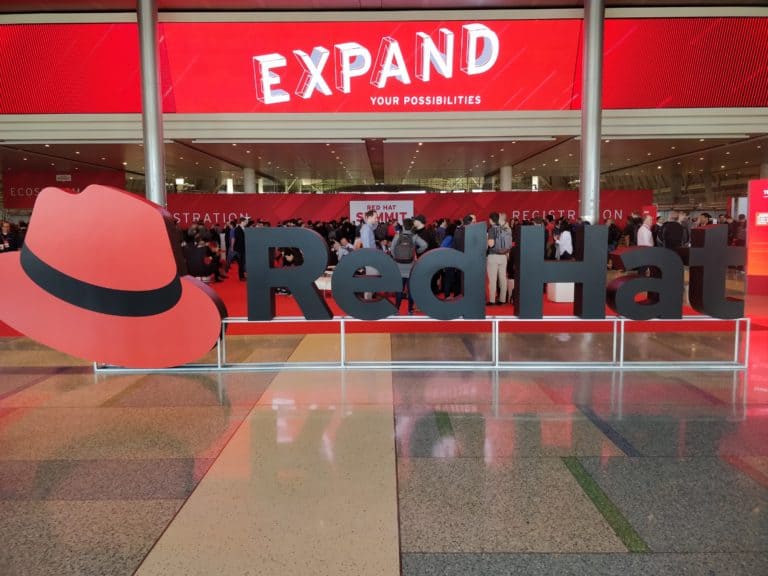Red Hat announced at its Summit 2019 in Boston an improved and optimized version, 8, of its enterprise open source OS Red Hat Enterprise Linux. According to the vendor, the latest version of its business OS is mainly adapted to the specific needs of companies and organizations that do a lot of DevOps.
According to the open source solution provider, the business operating system has now been completely overhauled to make it easier for companies and organizations to help them develop, manage, move workloads and operational tasks from the edge, the on-premise data center to (multi)cloud environments. Version 8 should also help to develop and implement innovative technology strategies.
More specifically, Red Hat has now built into version 8 of Enterprise Linux as standard a number of solutions that will help companies and organizations to do all this faster and easier.
For example, all experience and knowledge of deploying and maintaining Linux-based production systems for data centers and (hybrid) cloud environments is now offered as-a-service through Red Hat Insights, as standard with all Linux subscriptions. This tool helps proactively with predictive analysis to identify and solve various IT problems, from security problems to stability problems.
Simplify complex management
To help end users with the complexity of the systems that are spread across different infrastructures, the open source vendor now introduces the layered add-on Red Hat Smart Management. It allows end-users to leverage the benefits of the hybrid cloud and minimize additional management complexity. Services that RH Smart Management serves include vulnerability management, compliance management and system comparison.
In combination with Red Hat Satellite, Enterprise Linux 8 includes the ability to manage, modify, configure and deliver Red Hat Enterprise Linux deployments in the hybrid cloud in a single environment.
In addition, Red Hat Enterprise Linux Red Hat Enterprise offers Linux 8 Application Streams languages, frameworks, and developer tools that are regularly updated to help them innovate faster.
Reduced complexity of Enterprise Linux
The latest version should also lower the threshold to work with Linux. Version 8 is therefore extremely accessible for Windows administrators, starting Linux users and new system administrators. Red Hat Enterprise Linux 8 abstracts much of the deep complexity of granular sysadmin tasks with the Red Hat Enterprise Linux web console. Improvements include internal upgrades to make it easier and more efficient to convert Red Hat Enterprise Linux 7 instances to Red Hat Enterprise Linux 8 systems.
Version 8 also includes Red Hat Enterprise Linux System Roles, powered by Red Hat Ansible Automation, to automate many of the more complex management and configuration tasks of Linux in production.
Other improvements
Red Hat Enterprise Linux 8 also supports OpenSSL 1.1.1 and TLS 1.3 cryptographic standards to improve security. It goes without saying that the development, roll-out and relocation of containers are also better supported.
For example, version 8 supports the Red Hat OpenShift Container Platform and the recently presented version 15 of OpenStack. Red Hat Enterprise Linux 8 is also widely supported as a guest OS on Red Hat’s hybrid cloud infrastructure, including Red Hat OpenShift 4, Red Hat OpenStack Platform 15 and Red Hat Virtualization 4.3.
Red Hat Enterprise Linux 8 also supports Artificial Intelligence and new developments such as the IoT and has a wide ecosystem of partners available.
This news article was automatically translated from Dutch to give Techzine.eu a head start. All news articles after September 1, 2019 are written in native English and NOT translated. All our background stories are written in native English as well. For more information read our launch article.